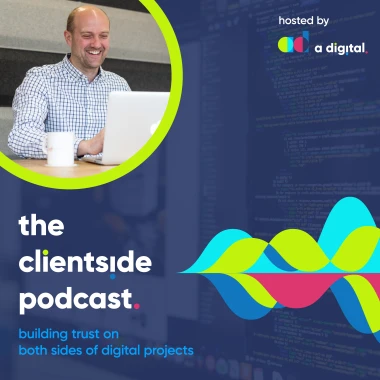
SEO with Thomas Marriott
The Clientside Podcast
41 min Thomas Marriott
In this episode of the Clientside Podcast Andrew Armitage talks to SEO expert Thomas Marriott about the fundamentals of SEO. Thomas highlights the importance of starting with good content that answers the questions your audience want to know.
We discuss the three pillars of SEO and why all three are needed. We look at how long it takes to reap the benefits of implementing SEO, what an SEO season is and how lockdown has impacted rankings in various industries.
Listen on your smart device or read the transcript below
Keep it simple, keep it basic, just write the content that's best for your user, your audience to read, and that'll get you those basic results.
Thomas Marriott Tweet